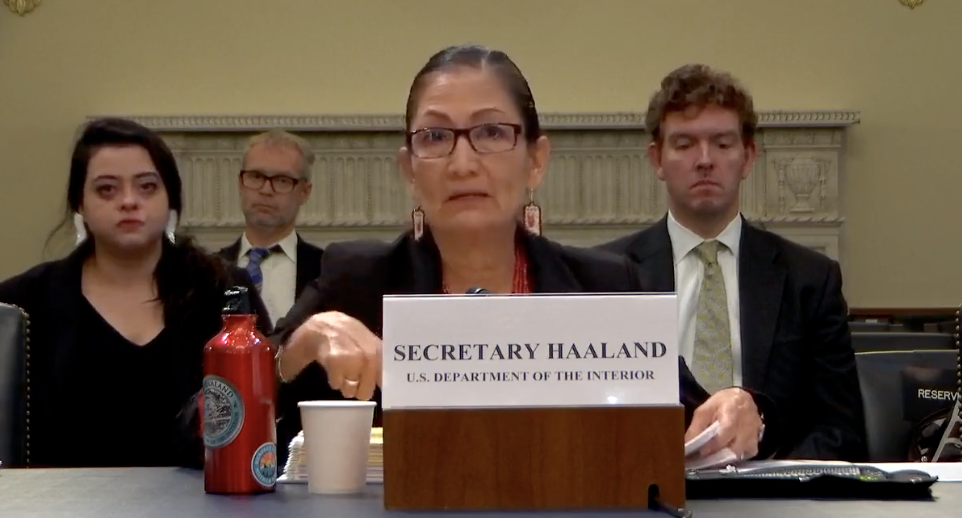Politics
WATCH: Biden Secretary Appears To Cry Because Of Climate Change During Hearing

President Joe Biden’s Secretary of the Interior Deb Haaland appeared to begin crying over the issue of climate change while giving testimony during a U.S. House Committee on Natural Resources hearing.
“I really do have to say that all of this is because climate change is the crisis of our lifetime,” Haaland said, as she then appeared to start crying briefly.
“We have an obligation to future generations to make sure that we have a planet for them to live on. And that’s why I’m here, and that’s why I’m working incredibly hard to make sure that we can realize that transition, that we can have differing energy sources. We can’t continue to be a one-industry country,” Haaland said.
WATCH:
Biden Interior Secretary literally starts crying during a congressional hearing: "All of this is because climate change is the crisis of our lifetime!" pic.twitter.com/7X6KzXjyhe
— RNC Research (@RNCResearch) April 19, 2023
Prior to the tears, Haaland was called out by Republican Minnesota Congressman Pete Stauber for allegedly lying under oath and banning mining in his district.
“Secretary Haaland banned mining in my district without knowing we have critical minerals there or knowing where the withdrawal took place,” Stauber wrote to Twitter with a clip of the full exchange attached.
“That’s unacceptable.”
WATCH:
Secretary Haaland banned mining in my district without knowing we have critical minerals there or knowing where the withdrawal took place. That's unacceptable. Watch my exchange with her in a @NatResources hearing here ⬇️ pic.twitter.com/vkUEz3ehVn
— Pete Stauber (@RepPeteStauber) April 19, 2023
Haaland, reportedly the first Native American cabinet secretary in U.S. history, reversed many Trump-era policies focused on boosting oil and gas extraction on American soil shortly after her confirmation in 2021, according to global law firm Akin:
Secretary Haaland’s Order 3398 reverses many actions that sought to bolster oil, gas and coal extraction on federal lands and waters. It also establishes a Department-wide policy “to listen to the science; to address societal inequities and create opportunities for the American people; to conserve and restore our land, water, and wildlife; to reduce greenhouse gas emissions; to create jobs through a growing clean energy economy; and to bolster resilience to the impacts of climate change.”

